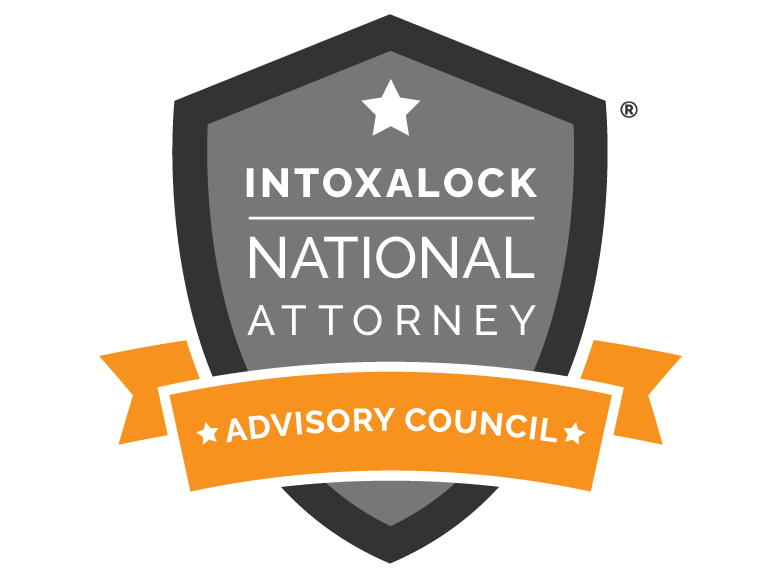San Antonio Federal Criminal Lawyer
Being charged with a federal crime is a serious concern. If it happens to you, it can be beneficial to search for San Antonio federal lawyers for assistance. Working with a qualified federal crime lawyer in San Antonio, TX can help you avoid potentially serious consequences. Call Hoelscher Gebbia Cepeda, PLLC when you need assistance from a criminal defense lawyer in San Antonio, Texas. Our experts are experienced in federal criminal defense. As such, we are prepared to offer you quality representation.
We will fight aggressively and effectively for your rights to help you achieve a positive outcome. So, consider calling us today to speak to a qualified San Antonio federal criminal defense attorney.
What Is Federal Criminal Defense?
Federal crimes tend to be far more serious than ones at the state level, and as such may have more serious consequences. While ultimately the penalty depends on the crime committed, judges are permitted to increase the sentence under certain circumstances. The actual punishment ranges from a few months to life in federal prison.
When you’re first arrested, it can be tempting to answer any questions a federal authority may have. However, it’s important to insist on your right to a San Antonio federal criminal attorney. Federal courts have extensive resources already. As such, it can be harmful to say anything, as it can potentially be used as evidence against you. While you should comply with federal authorities in other matters, you have the right to a federal criminal lawyer, and it’s important that you seek their guidance first.
Call Hoelscher Gebbia Cepeda, PLLC when you’re searching for a federal criminal lawyer in San Antonio, TX or the surrounding communities. Our team has extensive experience with every type of federal criminal defense and is prepared to help you with your case. We aim to provide you with quality legal representation and guidance in order to achieve the best possible result for your case. If you need someone experienced with federal criminal defense, then call our experts today to learn more.
Federal Lawyers Local To Your Area
When searching for federal lawyers consider working with Hoelscher Gebbia Cepeda, PLLC. Our team is ready to help you with whatever situation you find yourself in. If you need a federal criminal lawyer in any of the following areas, please consider giving us a call:
- San Marcos, TX
- San Antonio, TX
- Seguin, TX
- Floresville, TX
- Jourdanton, TX
- New Braunfels, TX
- Boerne, TX
- Hondo, TX
- Fredericksburg, TX
The first step to getting a positive outcome for your case is to find a qualified federal criminal lawyer. An experienced lawyer knows the ins and outs of the federal court. As such, they can help build a strong defense for your case. Additionally, they can advise you on the best course of action throughout the process. Hoelscher Gebbia Cepeda, PLLC is available to help.
Federal Criminal Charges FAQ’s
A federal agency is investigating me. What should I do?
Do not talk to investigators. Exercise your right to remain silent. If you are under investigation, or if you only suspect that you are under investigation, the first thing you need to do is contact an attorney. Again, do not talk to investigators. Contact us.
How do I choose a lawyer to handle my federal case?
Not every criminal defense lawyer defends against federal charges or is admitted to handle cases in federal court. You need a San Antonio federal criminal attorney who has experience in federal courts in Texas. Our firm can handle a wide variety of federal crime cases, including:
- Federal drug trafficking charges
- White collar crime allegations, including federal fraud and tax evasion charges
- Federal weapons charges
- Violent crime charges, including death penalty cases
- Federal sex crime charges, including human trafficking
- Federal Internet crime charges
In fact, our firm has a reputation for providing aggressive and effective defense in the most difficult types of cases.
What are the possible penalties for a federal conviction?
In short, the possible penalties for a federal conviction will depend on the facts of your specific case. However, very heavy penalties are possible under federal sentencing guidelines, and federal judges have the discretion to increase those penalties even more under certain circumstances. Depending on the charge in question, the penalties for a federal conviction could range from a few months in federal prison to life in federal prison. Certain offenses — abduction, for example — can lead to an increased sentence, while in other cases, there may be factors that result in a reduced sentence. Again, to secure the best possible outcome in your case, it is crucial that you immediately obtain legal counsel. There is no time to waste in building a strong defense.
Can I get out on bond if I’m charged with a federal crime? Do federal courts have bail?
Federal courts do not use a “bail” system involving payment of large fees or the use of private bonding companies. Instead, they have a system in which eligible persons can be released into the community pending resolution of their case. The first step in getting a bond is talking to the Pretrial Services Officer. Many defendants and their families will avoid communication with federal officers after getting arrested by the feds, but the Pretrial Services Officer is looking to gather information and prepare a report to the judge regarding bond.
While it might be good to have a San Antonio federal criminal defense lawyer present for these interviews, don’t blow off the Pretrial guy. Be as polite as possible. Not all defendants are eligible for pretrial release. Many federal charges require mandatory detention. However, if you are granted a bond and released, you can expect to be monitored and to have conditions you need to follow. These can range from house arrest to being restricted from cell phone use. Following these rules helps show the court that you are taking your case seriously.
How soon will I find out if I can get a federal bond? How fast can I get released from federal custody before trial? What are my chances of getting released?
You will be reviewed for release very quickly, generally at an arraignment or detention hearing. Arraignment is required within 10 days of your arrest. Your chances depend on a huge number of factors. You may request a federal detention hearing if your circumstances change or appeal an initial denial of release. However, if you are barred from pretrial release by law, then even the judge can’t help you. It is important to consult an experienced federal criminal lawyer quickly if you want to seek a pretrial release from federal custody. Your lawyer will need time to prepare.
What are the federal sentencing guidelines?
From 1987 until 2005, defendants found guilty in U.S. federal court were punished according to the United States Sentencing Guidelines (“USSG”). The USSG manual contained the rules for determining the range within which the judge’s sentence had fall. Factors that went into the determination included the offense for which the defendant was convicted; certain factors about the offense such as how much money was involved in a financial crime, the role of the defendant in the overall scheme, and other factors concerning the defendant’s conduct; and the defendant’s criminal record. The court was required to sentence within the applicable guideline range (expressed in a range of months) unless the case was extremely unusual or qualified for one of the few exceptions allowing the judge to depart from the guidelines. Guideline sentencing was a complicated aspect of federal criminal cases.
However, the United States Supreme Court, in January 2005 declared the mandatory nature of the guidelines unconstitutional. Now, the United States Sentencing Guidelines Manual is merely advisory. In practice, however, most federal judges follow the USSG closely. Federal criminal lawyers can help calculate your USSG range and will often challenge the Government’s sentencing calculations.
How do I calculate my USSG range or federal sentencing range?
We don’t really recommend you do that. The sentencing guidelines use a complex point system. There are 43 “levels” of federal offenses. There are 4 “sentencing zones.” The zones range from a sentence of between 0 – 6 months in prison up to a life sentence. You may also be given extra points (increasing your sentence) or have points removed based on a large number of exceptions – whether you have a prior record, a gun was used, the amount of money involved, whether you cooperate with the feds. Even lawyers argue about whether a certain exception might apply in a particular case. For example, a “leader/organizer” will have points added, but determining who is really a leader or organizer of criminal activity is often the toughest part a federal agent’s job. So, we highly recommend that you consult a good San Antonio federal criminal defense attorney and understand that calculating federal sentencing guideline ranges is a process that can evolve over time.
Should I fight my federal case to a jury?
I hate these feds and I’m not a snitch! Well over 90% of federal criminal cases result in a plea deal instead of a trial. The feds are pretty good at building cases and have far more resources than state cops. Don’t lock yourself into a position until you see the evidence. The decision to take a deal, or not, is a big one. At Hoelscher Gebbia Cepeda PLLC, we’d love more federal jury trials. The courtrooms are nicer and they have cooler stuff. The reality is that most of our clients will direct us to get the best deal possible. That doesn’t necessarily mean cooperating with the guys who arrested you, but if you want that sweet, sweet deal, we won’t judge. At Hoelscher Gebbia Cepeda PLLC, our clients’ needs come first. Our experience means we can be your guide through federal plea bargaining or your warriors in trial.
I got arrested on post for DWI. How is a federal DWI or DUI different from a State or civilian DWI?
Well, this depends on how you came to be on post. If you merely trashed some fencing after losing control of your vehicle while on a road near the base, then your case may get rejected by the feds and sent to state court. If you are military and stationed on that post, then your case likely stays federal even if you didn’t make it past the gatehouse. In that case, you may face Article 15 issues as well as the civilian federal prosecution. The upside of a federal DWI is that federal prosecutors have less experience trying DWIs and federal judges actually read defense briefs.
You may have an opponent who isn’t up to snuff when the judge has high expectations. The bad news is that you won’t be getting a jury unless your DWI managed to be a federal felony (which is just bad). Some AUSAs (Assistant U.S. Attorneys) are getting better at DWI practice, but few stay near the cutting edge. Another difference is in the law governing DWIs in federal court. Texas law allows for a variety of defensive tactics that are not available in federal court. On the other hand, federal procedure is more exacting than Texas criminal procedure. You need an experienced DWI lawyer to maximize your edge on the prosecutor and an experienced federal lawyer. At Hoelscher Gebbia Cepeda PLLC, we can provide both.
Contact Our San Antonio Federal Criminal Lawyers
At Hoelscher Gebbia Cepeda, PLLC, we understand that no two cases are alike. Trying to apply a generalized defense strategy isn’t beneficial as it means you won’t have as strong a case. Because of this, we take the time to speak with you and gather information to have a better idea of your unique situation. Then, we’ll formulate a case around what we learn. Additionally, we’ll provide advice and support throughout the process, and let you know what the best course of action will be for your situation. Finding a federal criminal lawyer may be the difference between a harsh sentence and a minor one. Or, you may be able to avoid a conviction altogether. Contact the experts at Hoelscher Gebbia Cepeda, PLLC, and learn more about how we can help.
Finding a federal criminal lawyer may be the difference between a harsh sentence and a minor one. Or, you may be able to avoid a conviction altogether. For a confidential consultation regarding your goals and concerns, call (210) 222-9132 or contact us online. At Hoelscher Gebbia Cepeda, PLLC, our clients are our top priority.
 Responsive Dedicated Aggressive
Responsive Dedicated Aggressive 
















